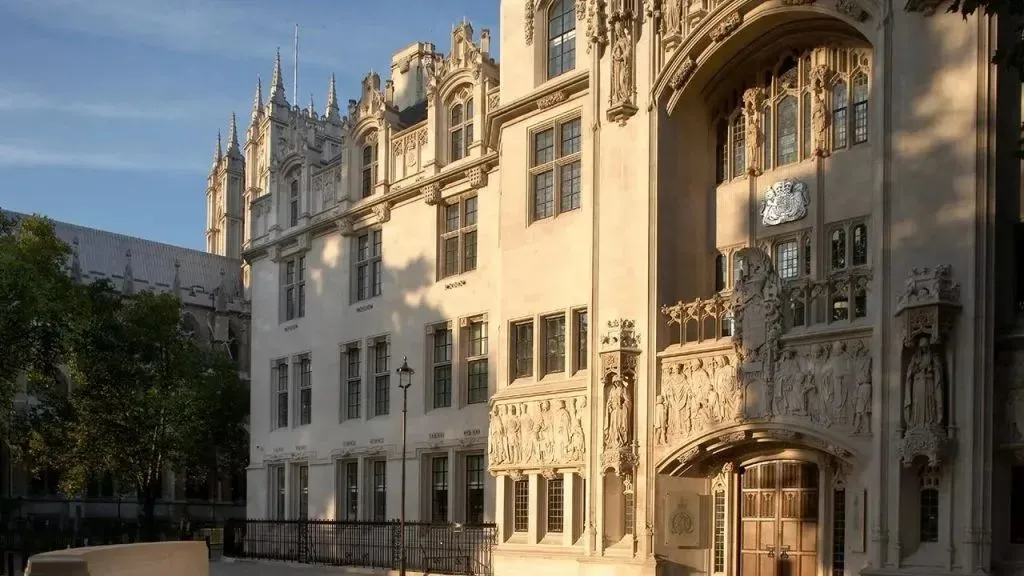
The Supreme Court has ruled against One Savings Bank in a case concerning a borrower who said she was subject to “undue influence” by her ex-partner when they took out a remortgage.
The court decided that the lender should have followed a specific legal protocol to help ensure that the homeowner, Catherine Waller-Edwards, had not been put under “undue influence” when agreeing to the loan against the property.
Legal experts say the ruling means that lenders, and potentially also brokers, will need to take extra steps to satisfy themselves that borrowers are not subject this type of pressure when entering into mortgage contracts.
Previous court cases have already resulted in an agreed process that lenders must follow, known as the Etridge Protocol, to help protect borrowers.
However, today’s ruling, Waller-Edwards (Appellant) v One Savings Bank Plc (Respondent), means lenders will need to follow this protocol in a wider range of circumstances.
The background
In this case, the borrower and appellant Catherine Waller-Edwards had previously been financially independent as she owned her £600,000 home mortgage-free, had substantial savings of £150,000 and a modest pension income.
But, according to the judgment, in 2011, at a time when she was “emotionally vulnerable” she entered into a relationship with builder and property developer Nicholas Bishop.
Bishop persuaded her to exchange her home and savings for a property he was building, which already had a loan charged against it.
In 2013, the couple remortgaged the property for £384,000 with One Savings Bank.
The lender understood the remortgage would be used to pay off the existing mortgage debt and purchase another property as a buy-to-let.
In fact, the money was used to pay off his car finance, credit card and to make a divorce payment to his ex-wife as well as clearing the first mortgage on the property.
Following this the relationship between Waller-Edwards and Bishop broke down with Bishop moving out and Waller-Edwards remaining at the property, which was now heavily mortgaged.
On her pension income alone she was unable to keep up the repayments and the mortgage went into arrears.
The lender began possession proceedings in November 2021.
When appealing the repossession, Waller-Edwards argued that the Etridge protocol should have applied and that she was put under undue influence by Bishop when entering into the remortgage because it was partly used to pay off Bishop’s debt of £39,500.
The judge agreed, but later the County Court, High Court and Court of Appeal found that One Savings Bank was not required to follow the protocol and carry out checks to ensure that Waller-Edwards was not put under undue influence because it was considered “joint borrowing” rather than a “surety transaction” where she was acting as a kind of guarantor.
Today’s judgment reverses that finding.
The implications for lenders
Herbert Smith Freehills Kramer senior associate Frances Edwards says: “The ‘Etridge protocol’, which has been in place since the early 2000s, seeks to protect vulnerable parties who might be forced to provide security for a loan under undue influence from the other party to the loan.
“It requires banks to communicate directly with the party to ask them to obtain independent legal advice about the loan and to obtain confirmation from a solicitor acting for that party that the solicitor has fully explained the nature of the transaction and its practical implications.
“In a judgment handed down on 4 June 2025, the UK Supreme Court widened the requirement on banks to follow the protocol where sums are being advanced to two non-commercial parties jointly but the funds are to be used partly for one party’s own purposes.
“Practically, this requires banks to send out their usual Etridge protocol letter in these additional circumstances, which many may well have been doing following the Court of Appeal’s judgment in the case.
“The judgment provides clarity as to what is required, simplifying the complex ‘fact and degree’ test suggested by the Court of Appeal.”
Questions over impact on brokers
Blackfords financial crime partner Jennifer Richardson says the ruling significantly increases the liability on lenders to undertake checks in respect of borrowers.
But she says: “The decision also raises a lot of questions about how this will be applied in the case of mortgage brokers for example.
“Will this liability extend to them as well? Should this lead to a more stringent regulatory regime?
“Solicitors are often expected to identify similar situations when dealing with clients, and face regulatory investigations if they fail to do so.
“It may be that we see a similar tightening of regulation amongst lenders as a result of this case.”



